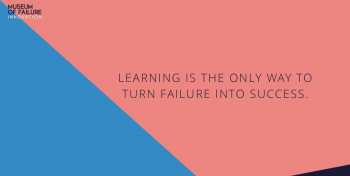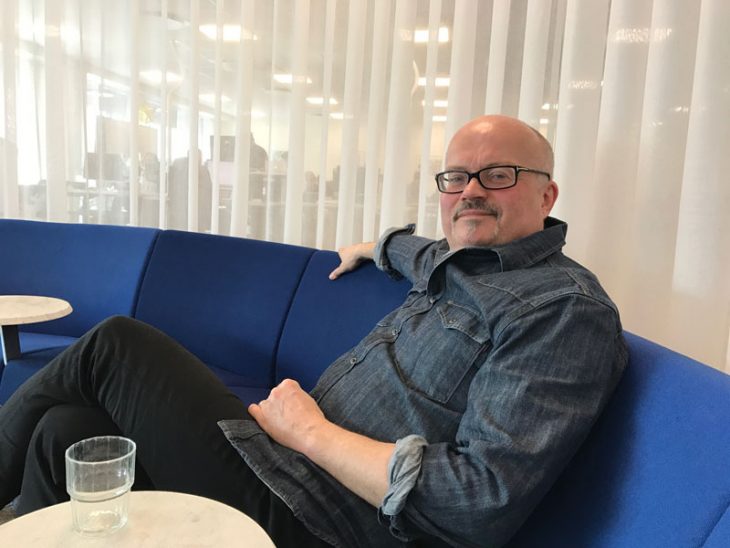In a project I’m involved (www.museumoffailure.se) I had the opportunity to meet a very sympathique journalist, and I got interested in a statement he mention later at Facebook. In order to mute my curiosity I contacted him for an interview – a cool twist: to interview the journalist.
He’s name is Stefan Lindqvist, and he had over 35 years of experience in the journalistic field and is today working at the largest daily newspaper in southern Sweden: HD/Sydsvenskan.
Who are you?
I’m a long-runner in the journalistic field as I started as an apprentice and had to learn the work the hard way. But I will say this is the right way to do (as in many others occupations): you can’t sit in a classroom or in front a computer to learn how the society work, you need to participate!
I started to do newspapers at age 9, so that was no option what my profession will be. I had several mentors that help me in various areas, and the old school was to start in a small office in a small town, which I did. I covered all and everything, and working in a small office you need to go out and talk to people – which help me, as I was very shy as young. I covered many sports in the local sphere at the beginning and then you sat in the locker room and talked to the football players man-to-man – this is impossible today. After some years and journalistic training I moved to cover local news, music, film and all others subjects.
When going out in the field you get all details, fragrances, impressions, pictures etc. that then form the article. Today much of this is gone, unfortunately: a story comes from a PR-article, some text messages, some desktop research and that’s it. Compare this with all the natural impression above. Further, the personal picture the journalists get from the case is the most valuable asset, and asset has been rationalized!
Describe your business ”yesterday”?
I’ve got help from the old league. When started 30 years ago the office were open and people spontaneous come to see us for a talk and a cup of coffee. This seldom led to a story, but it was more social and a warmer climate, it also gave an input for eventual future scoops.
Describe your business ”today”?
Today I have to lock-up three doors to enter the office! Then the eye-to-eye meeting hardly exist, it’s text message, mail and lesser calls. After some ” text messages” maybe an interview will come, but it’s more formal than before.
Describe your business ”tomorrow”?
The future is already here, it’s Communication specialist, PR-people etc. that only want to have ONE message out, and on a special day to maximize the media exposure. It much more commercial and this scenario grows…
The difference between the Swedish and the foreign media scene?
Abroad it’s more controlled, harder to get info, faster tempo and tougher personal climate. Here in Swede, and Skåne, it’s looser and more human, but it’s getting harder for every day.
If I had done an interview with a foreign artist, at least three (3) different people will try to change it: all three with it’s special agenda. So the final text seems not be written by me! This is common with foreign record companies.
In Sweden it’s still not so controlled, but was said before it’s getting more day-by-day. This is why I stopped as sport reporter: today you have no access at all, you can’t talk to the players except 2 minutes in a mixed zone, you can’t ask what you want to ask and much more.
The digital evolution has changed industries, how has it changed the media industry?
All and Everything!
Today everything is on-line directly. Fastest wins. In the past you could ”hold” a news a couple of days, today you must spot the news and be first to publish it instantly!
But this situation has several other industries already seen. What about the medical doctors where the patients had goggled their ”symptom” and already have an “own” diagnose and this totally undermine the authority of the doctor. Or the restaurants that instantly get bad publicity at Internet when service or food don’t deliver what the consumer expects!
Today you get an instant evaluation of your services.
Tell me about your most interesting job/interview, and why it was that good?
An interview where people invite to a discussion, open up themselves and are enthusiastic about the very issue.
One of the absolutely most interesting people I had the opportunity to interview is the former leader of Circus Scott in Sweden – Francois Bronett. He totally embraced everyone with comfort and security and I could ask everything at wanted – no restrictions.
 A more resent interview is with the founder and curator of Museum of Failure in Helsingborg – Samuel West. The photographer and I said simultaneously after the interview that this was one of the best interviews we done, ever. And it depended of a super enthusiastic Samuel, so I as a reporter find his flow and enthusiasm which give a positive effect – which I already felt writing during the interview. If you get a ”kick” of the person you interview, the story will be much better.
A more resent interview is with the founder and curator of Museum of Failure in Helsingborg – Samuel West. The photographer and I said simultaneously after the interview that this was one of the best interviews we done, ever. And it depended of a super enthusiastic Samuel, so I as a reporter find his flow and enthusiasm which give a positive effect – which I already felt writing during the interview. If you get a ”kick” of the person you interview, the story will be much better.
And the worst?
No talkers, narcissist and other ”difficult” peoples. It’s often pretentious people that want to ”run the whole session” and think they will do my job themselves. In short, an insecure human often with narcissistically tendencies.
Job satisfaction and have fun at work?
With our two Scandinavian thinkers Jante and Martin Luther (before journalist Per Svensson shows him as a joyful person), we have a strong heritage to carry.
It affected me more before, being younger and having lower self esteem. Today when I’m older it’s much better: I just don’t care!
And I’m also more generous now, I share tip to younger reporters and give them cred. And I see what that does to them, they growing! When I as an old hack give them credit, I can see how much that mean to them. That a great feeling, to share, and also it’s very important that both old and young works together, I will say it’s more important than ever. We from the old school learnt from older reporters, new reporters learn in school – see the difference?
Describe with three (3) words what a journalist needs to be a good journalist?
Curiosity
– You need to ”see” the news
Respect
– How you treat other people and the context, as Ozzy Osbourne said: you met same people on your way up, as when you go ”down”…
Joy
– Have a good time all the time. (Quote from Spinal Tap)
How do you find the inspiration to write and how to formulate it?
When you mention it, my wife says I’m always read, everything, all the time. I read things I agree with and things I disagree with to get more than one perspective. You don’t have to agree, but you can see how someone thinks, the very process to his or her conclusion. You must know how your antagonist thinks and acts in order to get the full story!
Thanks!







Leave a Reply